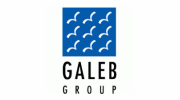Vigilantly, we must also be aware of the potential for cultural appropriation in the retelling of myths. As stories cross cultural boundaries, it is essential to approach them with respect and sensitivity. Engaging with myths from other cultures requires an understanding of their origins and significance, as well as a commitment to honoring the voices of those who created them. By doing so, we can foster a more equitable exchange of narratives that celebrates diversity while avoiding the pitfalls of exploitation. Engaging with these narratives allows individuals to reflect on their own lives and the stories they tell themselves.
By working together, residents can influence policy decisions that prioritize health and well-being in their communities. By understanding the risks associated with noise pollution, communities can advocate for healthier environments. This collective awareness can lead to meaningful action, resulting in quieter, more livable cities that support the health and happiness of all residents. Key to a successful approach to urban noise management is the recognition that it is a shared responsibility. Everyone has a role to play in creating a quieter urban environment, from individual actions to community initiatives and policy advocacy. By fostering a culture of collaboration and awareness, we can work together to address the challenges posed by urban noise pollution.
- Eukaryotic cells, characterized by their complex structures and organelles, emerged around 2 billion years ago.
- By connecting with others on an emotional level, we can cultivate a sense of belonging and support, which is essential for our mental well-being.
- This shift is prompting communities to create more inclusive spaces, such as dog parks and pet-friendly housing, which cater to the needs of pet owners.
- These technologies enable researchers to sift through vast amounts of information, identifying patterns and anomalies that may indicate the presence of dark matter or other cosmic phenomena.
- These underwater archaeological sites provide valuable insights into maritime trade, exploration, and cultural exchange.
Indigenous communities have long practiced sustainable land management and possess a deep understanding of their local ecosystems. Integrating indigenous knowledge with modern scientific approaches can lead to more effective conservation strategies and sustainable resource management. Respecting and valuing indigenous perspectives is essential for creating inclusive and effective sustainable development initiatives. Unifying global efforts to combat climate change is a pressing challenge that requires immediate action. Climate change poses a significant threat to sustainable development, impacting food security, water resources, and public health. Countries must commit to reducing greenhouse gas emissions and transitioning to low-carbon economies.
In a democratic society, disagreements and differences of opinion are addressed through dialogue, negotiation, and compromise rather than violence or coercion. This emphasis on peaceful conflict resolution is crucial for maintaining social cohesion and stability. Instant weight loss secret In addition to promoting social justice and accountability, democracy also fosters economic development. In a democratic system, individuals are more likely to invest in their businesses and take risks, knowing that their rights will be protected.
Juvenile literature, particularly poetry, plays a crucial role in shaping the cultural identity of young people. Through exposure to poetic forms, children and adolescents develop an appreciation for language, rhythm, and emotion. This early engagement with poetry fosters creativity and critical thinking, allowing young minds to explore complex themes and ideas.
porn anal Üyelik Nasıl Oluşturulur?
As research advances and our knowledge deepens, we can look forward to discovering new ways to harness the power of music in our daily lives. Whether through therapeutic practices, educational initiatives, or simply enjoying our favorite tunes, the potential for music to positively impact our brains and lives is boundless. So, let us celebrate the profound connection we share with music and continue to explore its transformative effects on our minds and hearts.
In conclusion, the exploration of cosmic darkness is a multifaceted journey that encompasses the realms of science, philosophy, and art. From the enigmatic nature of black holes to the elusive properties of dark matter and dark energy, the universe’s shadows hold secrets that continue to elude our grasp. As we strive to understand these mysteries, we are reminded of the beauty and complexity of the cosmos, and the enduring human spirit that drives us to seek knowledge in the face of the unknown.
The rise of social media and digital platforms has provided individuals with unprecedented opportunities to share their creative work with a global audience. This democratization of creativity allows diverse voices to be heard and celebrated, breaking down barriers that once limited access to artistic expression. As a result, we are witnessing a flourishing of creativity across various mediums, from visual arts to music and writing. Digital tools and software enable artists, designers, and creators to experiment and innovate in ways that were previously unimaginable.
porn anal Giriş Yeni Nesil Bahis Seçenekleri
As we delve deeper into the effects of sleep on cognitive functions, it becomes clear that sleep is not just a luxury but a necessity for maintaining mental acuity. The cumulative effects of sleep deprivation can lead to long-term cognitive decline, making it imperative for individuals to prioritize their sleep health. By recognizing the importance of sleep and making it a priority, individuals can improve their overall mental health and productivity. Notably, the impact of sleep on cognitive functions extends beyond individual performance; it also has broader implications for society. In workplaces where employees are sleep-deprived, productivity can suffer, leading to increased errors, accidents, and decreased job satisfaction.
- Institutions such as the United Nations and regional bodies like the European Union play a crucial role in supporting democratic governance and human rights.
- By making conscious choices and embracing a holistic approach to health, individuals can unlock their full potential and lead happier, healthier lives.
- Additionally, international cooperation is necessary to address the challenges facing the deep ocean.
- One of the most harrowing aspects of World War II was the Holocaust, the systematic genocide of six million Jews and millions of others deemed undesirable by the Nazi regime.
- In recent years, the intersection of art and technology has opened new avenues for social justice advocacy.
Ultimately, the development of technology in medicine is a testament to human ingenuity and the desire to improve health and well-being. As we continue to explore new frontiers in medical technology, we must remain committed to ethical practices, patient-centered care, and equitable access. By doing so, we can ensure that the benefits of technological advancements are realized by all, paving the way for a healthier future. In summary, the evolution of technology in medicine has transformed the healthcare landscape in profound ways. From enhancing patient care through telemedicine and wearables to revolutionizing research with AI and big data, the impact is far-reaching. The integration of emerging technologies such as artificial intelligence, machine learning, and blockchain will continue to shape the future of medicine.
Initiatives such as the UNESCO World Heritage Convention aim to safeguard sites of outstanding universal value, emphasizing the importance of preserving our shared history for future generations. Furthermore, the ethical considerations surrounding archaeological practice have gained prominence in recent years. Issues of ownership, representation, and the rights of indigenous communities are at the forefront of discussions within the field. Archaeologists are increasingly recognizing the need to engage with local populations and respect their perspectives on heritage. As we look to the future, the role of archaeology in learning about the past will continue to evolve. By embracing diverse methodologies and perspectives, archaeologists can paint a more comprehensive picture of human history that reflects the richness and diversity of our shared experiences.
The intersection of science and activism has led to increased awareness of issues such as health disparities, environmental justice, and access to education. For instance, the COVID-19 pandemic highlighted the importance of equitable access to healthcare and vaccines, prompting calls for systemic change. Scientific research has played a pivotal role in advocating for marginalized communities, ensuring that the benefits of discovery are shared broadly rather than concentrated in the hands of a few. Just as we consider the implications of scientific advancements, it is vital to recognize the role of education in fostering a scientifically literate society.
In addition to its role in creativity, inspiration also plays a crucial part in personal growth and self-discovery. When individuals are inspired, they often find themselves questioning their beliefs, values, and aspirations. For many, inspiration acts as a guiding light, illuminating the path toward their true purpose and potential. Inspired individuals often become sources of inspiration for others, creating a ripple effect that can lead to collective change. This phenomenon is particularly evident in social movements, where passionate leaders inspire communities to rally around a common cause.
In this sense, the relationship between media and reality is not merely passive; it is an active dialogue that can evolve over time. Moreover, the role of citizen journalism has gained prominence in recent years, particularly with the advent of smartphones and social media. Ordinary individuals can now report on events as they unfold, providing real-time accounts that can challenge mainstream narratives. This democratization of information can serve as a counterbalance to traditional media, offering alternative perspectives and fostering a more nuanced understanding of reality. However, it also raises questions about credibility and accuracy, as not all citizen-generated content adheres to journalistic standards. As we navigate this complex media landscape, it is essential to recognize the ethical responsibilities that come with media consumption and production.
By understanding the various sources of inspiration and embracing the ebb and flow of creativity, we can unlock our potential and embark on a fulfilling creative journey. Ultimately, inspiration is not just a fleeting moment; it is a boundless wellspring that invites us to explore, create, and share our unique voices with the world. By recognizing the power of inspiration and actively seeking it in our lives, we can transform our experiences and contribute to the rich tapestry of human creativity. Whether through art, writing, music, or any other form of expression, inspiration has the potential to connect us, uplift us, and inspire others in turn.
- The ability to adapt to life’s challenges and bounce back from adversity is a key trait among those who live long lives.
- By fostering an appreciation for all languages, we can promote understanding, empathy, and connection in an increasingly interconnected world.
- As we consider the implications of color psychology, it is essential to recognize that individual responses to color can vary widely.
- Not to be forgotten, the role of fashion in social movements has been significant throughout history.
- Encouraging the use of public transport, cycling, and walking can significantly reduce vehicular emissions.
The linear model of production and consumption, where resources are extracted, used, and discarded, is no longer viable. Instead, a circular economy approach, which emphasizes reducing, reusing, and recycling materials, can help minimize waste and conserve resources. By designing products with their entire lifecycle in mind, businesses can contribute to a more sustainable economy. By raising awareness about environmental issues and teaching sustainable practices, we can empower individuals to make informed choices. Education can inspire the next generation of leaders, innovators, and change-makers who will drive the sustainable development agenda forward. Integrating sustainability into school curricula and promoting environmental literacy are essential steps in this process.
The transition to a sustainable energy system is critical for addressing climate change and ensuring a stable energy supply for future generations. Innovations in solar, wind, and energy storage technologies are making renewable energy more accessible and affordable than ever before. For instance, advancements in solar panel efficiency and energy storage solutions, such as lithium-ion batteries, are enabling households and businesses to harness solar energy effectively. As the cost of renewable energy continues to decline, we can expect a significant shift away from fossil fuels towards cleaner energy sources.
Furthermore, fostering a supportive school environment is critical for promoting positive mental health among adolescents. This can be achieved through anti-bullying initiatives, peer support programs, and open lines of communication between students and staff. When adolescents feel connected to their school community, they are more likely to engage in positive behaviors and seek help when needed. Parents who actively engage in their children’s lives, maintain open communication, and provide emotional support can significantly influence their adolescents’ well-being. Establishing a strong parent-child relationship can help adolescents feel secure and understood, which is essential during this tumultuous period. Parents should strive to be approachable and non-judgmental, allowing their children to express their thoughts and feelings freely.
The understory, characterized by lower light levels, supports a different set of plants and animals, including smaller mammals, reptiles, and a rich diversity of insects. The consistent warmth and high humidity create a microclimate that supports a diverse range of plant life. Trees in these forests often exhibit remarkable adaptations, such as broad leaves that maximize photosynthesis and shallow root systems that allow them to absorb moisture quickly.
Similarly, Native American folklore, rich with symbolism and spirituality, offers insights into the deep connection between the land and its people, emphasizing respect for nature and community. National anthems, folk dances, and traditional festivals often draw upon folklore to evoke a sense of pride and belonging. In an increasingly globalized world, where cultural homogenization threatens the uniqueness of local traditions, folklore acts as a safeguard for cultural diversity.
The works of ancient scholars, such as Hippocrates in medicine or Aristotle in philosophy, continue to resonate in contemporary discussions. By studying these manuscripts, we can gain insights into the origins of scientific thought and the philosophical inquiries that have shaped human understanding. As we continue to uncover the secrets of ancient manuscripts, the collaborative efforts of scholars, conservators, and technologists are essential.






















